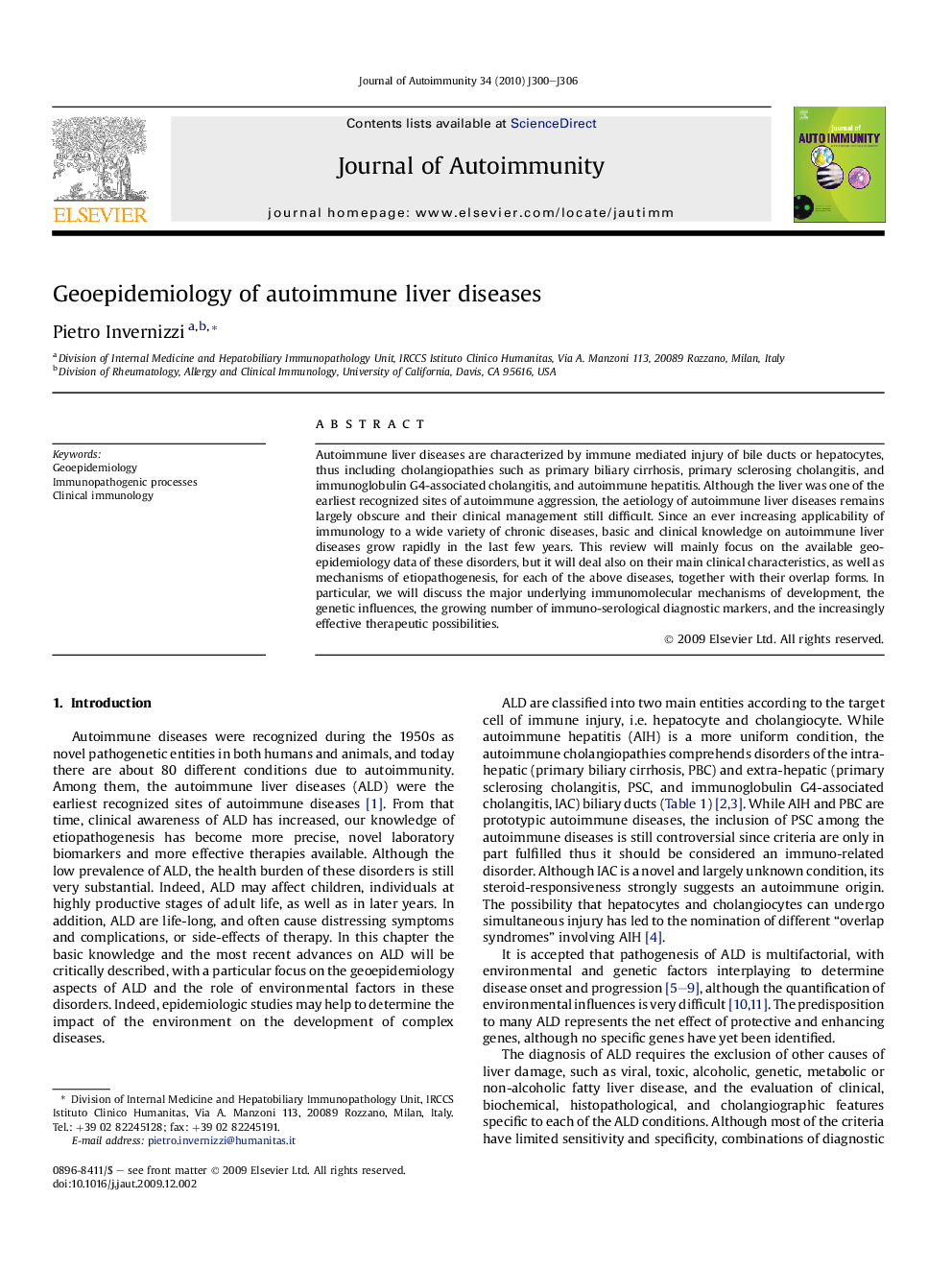| Article ID | Journal | Published Year | Pages | File Type |
|---|---|---|---|---|
| 3368126 | Journal of Autoimmunity | 2010 | 7 Pages |
Autoimmune liver diseases are characterized by immune mediated injury of bile ducts or hepatocytes, thus including cholangiopathies such as primary biliary cirrhosis, primary sclerosing cholangitis, and immunoglobulin G4-associated cholangitis, and autoimmune hepatitis. Although the liver was one of the earliest recognized sites of autoimmune aggression, the aetiology of autoimmune liver diseases remains largely obscure and their clinical management still difficult. Since an ever increasing applicability of immunology to a wide variety of chronic diseases, basic and clinical knowledge on autoimmune liver diseases grow rapidly in the last few years. This review will mainly focus on the available geoepidemiology data of these disorders, but it will deal also on their main clinical characteristics, as well as mechanisms of etiopathogenesis, for each of the above diseases, together with their overlap forms. In particular, we will discuss the major underlying immunomolecular mechanisms of development, the genetic influences, the growing number of immuno-serological diagnostic markers, and the increasingly effective therapeutic possibilities.
